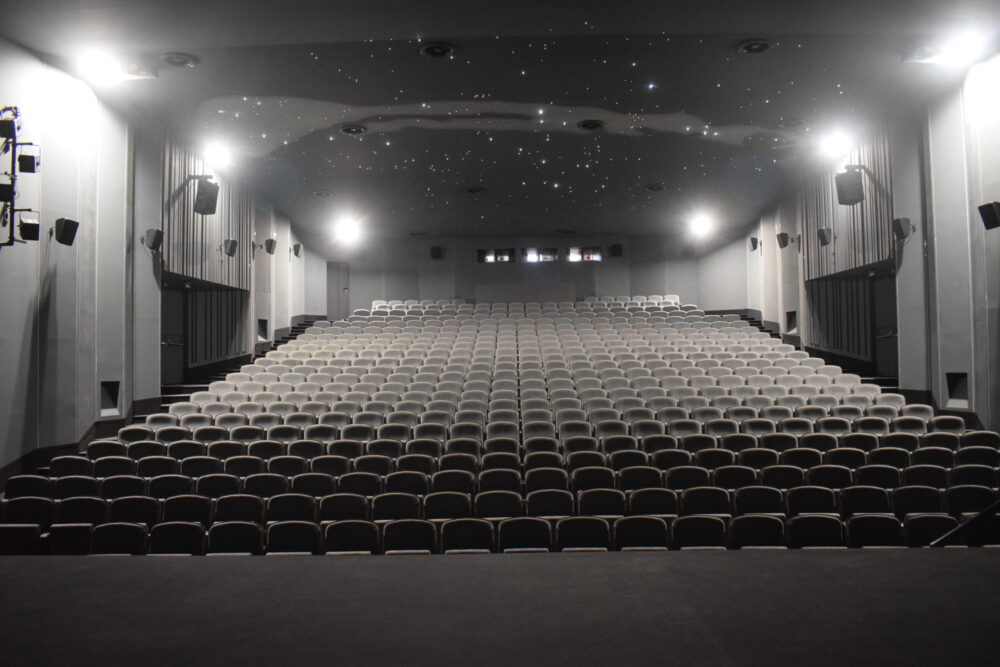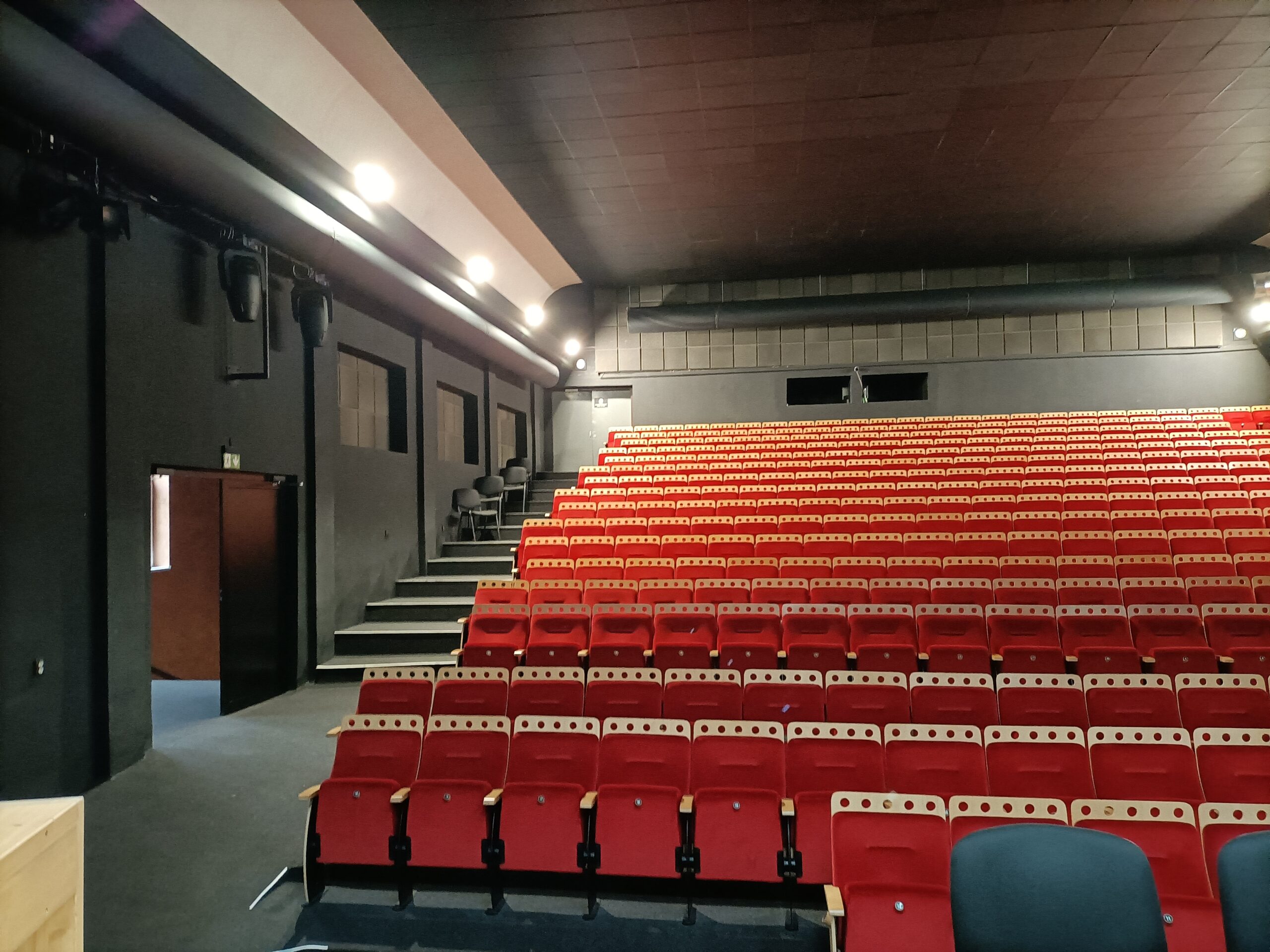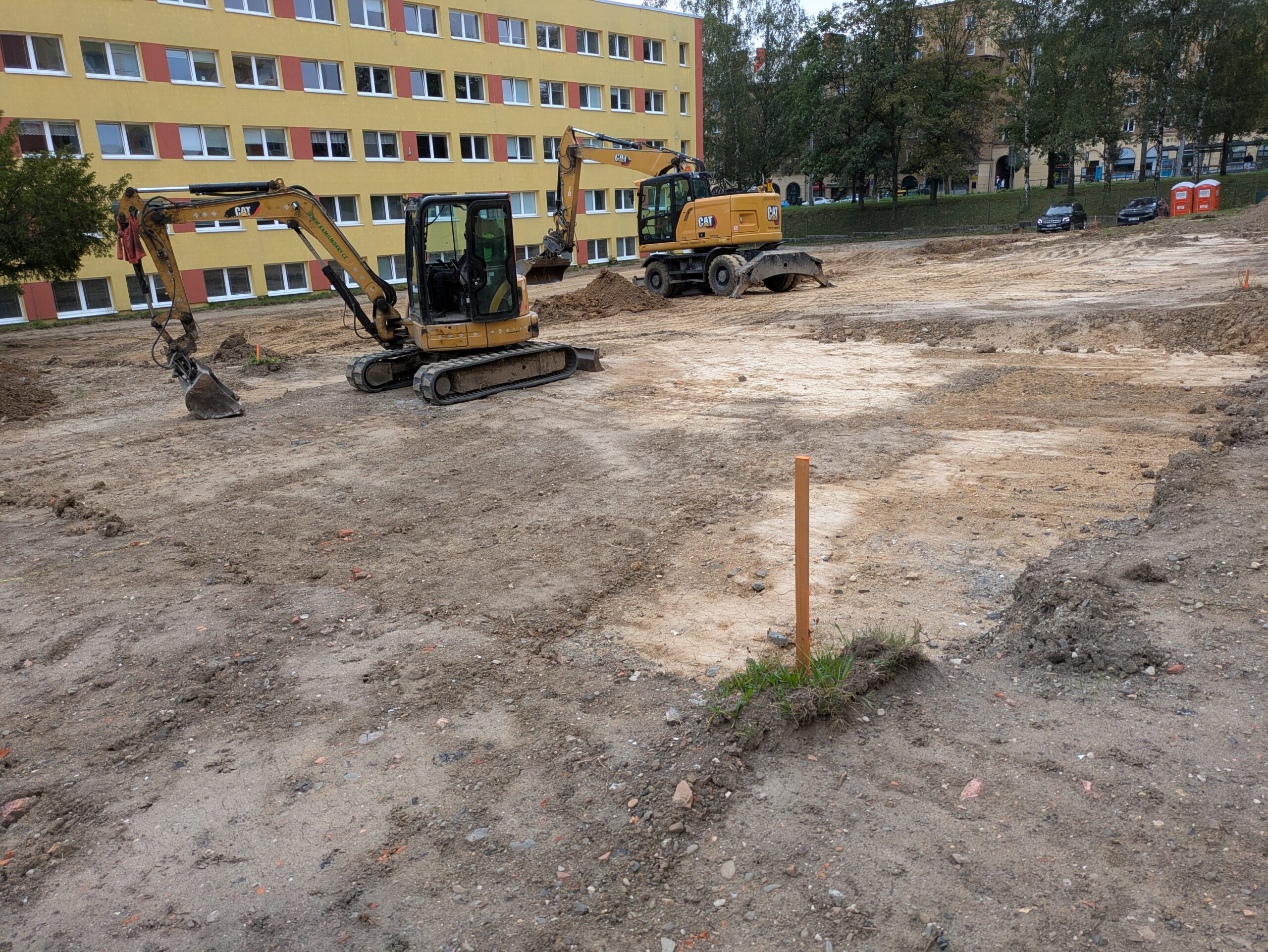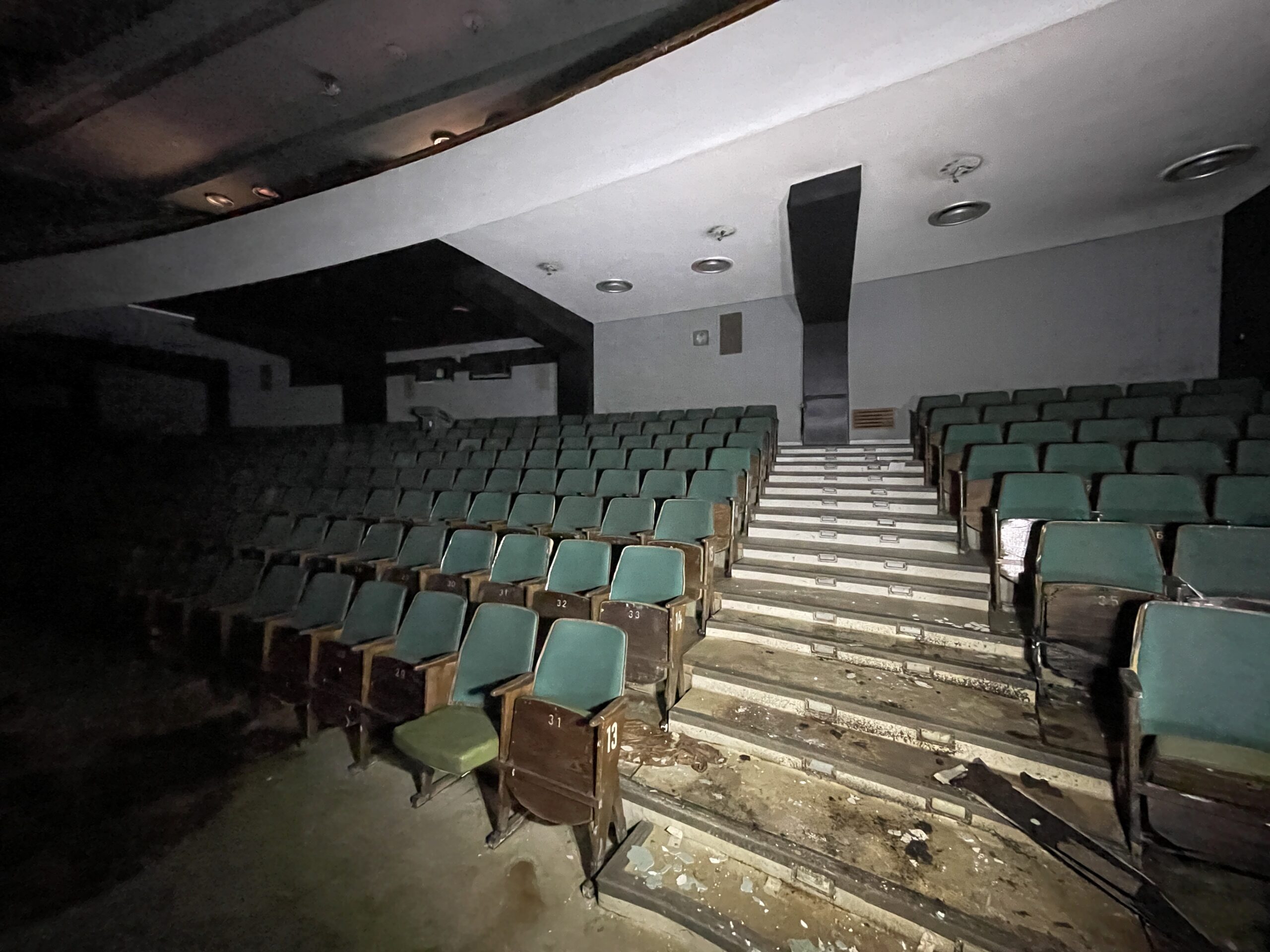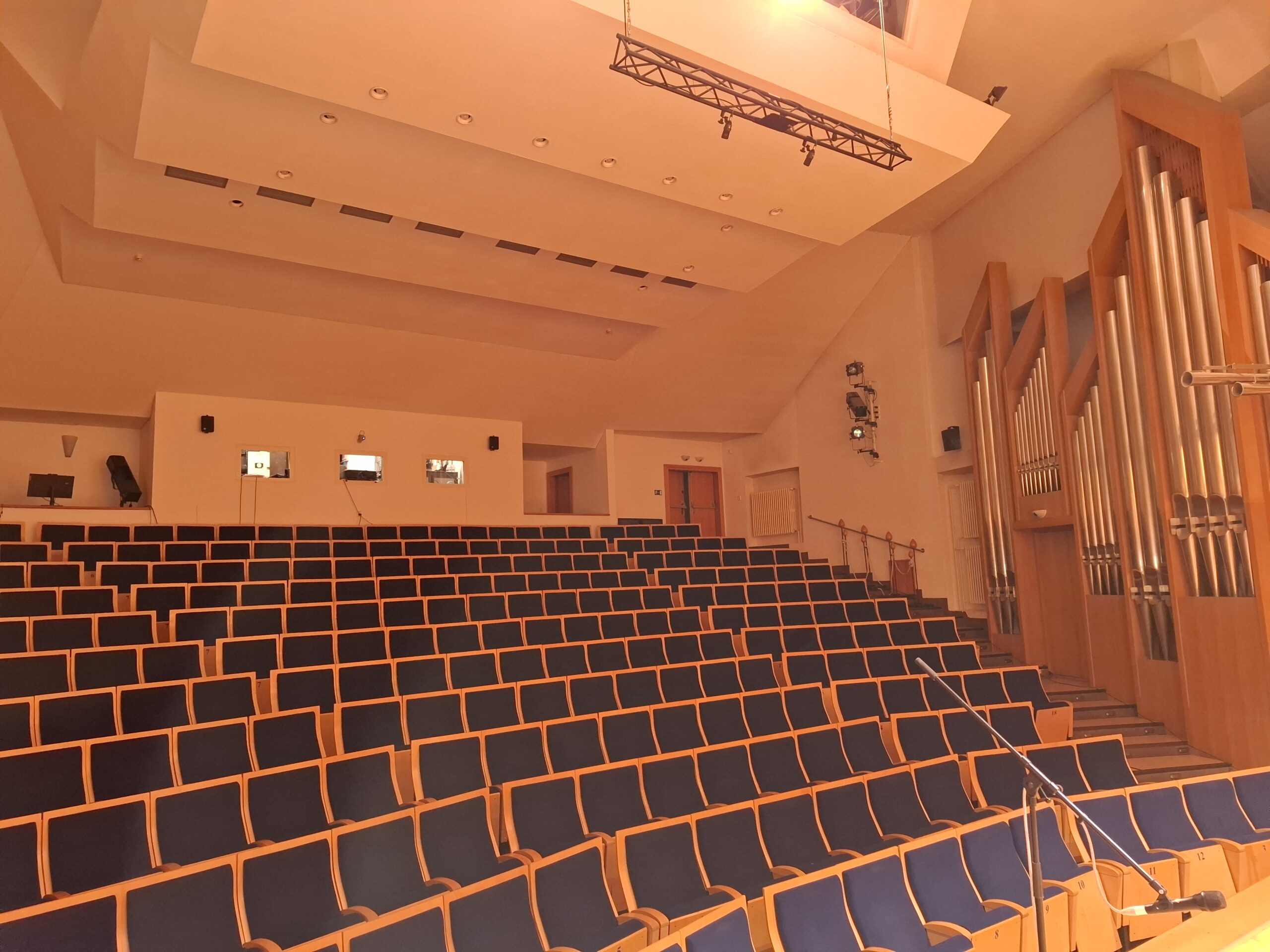Every project, whether it is the construction or reconstruction of a cultural centre, theatre or cinema, goes through several key stages:
- It starts with the very idea of considering the need and importance of creating or reconstructing a cultural space.
- passporting,
- preparation of project documentation,
- after completion of the documentation, preparation for implementation follows,
- we must not underestimate the selection of a suitable supplier of technical units, construction works and modifications,
- the actual implementation of the project is the stage where plans are turned into concrete construction,
- the final stage is the handover, when the cultural centre, theatre or cinema is handed over for public use.
Thanks to our many years of experience with cultural centre, theatre and cinema projects, we are able to identify potential complications in the preparatory phase.
This eliminates:
- possible extra work,
- we minimize financial requirements
- and adhere to the set timetable.
Throughout the process, unexpected situations can arise that can affect the timeline, completion date and financial budget of the project.
Let’s take a look at some of these situations
Intention – reconstruction idea
In preparation for renovation, construction and similar building activities, careful consideration of the target project plays a key role. Often, new requirements emerge during the course of the modifications, which can affect work already in progress. This change in scope of work is subject to a project tri-imperative, affecting project schedules and costs. Ultimately, these changes can become very challenging for the client.
Pasportization
Passporting is the process of describing and documenting the actual state of affairs. In our case, it is a description of land, buildings, utilities or other existing structures.
Elaboration of project documentation
In complex projects of a cultural house, theatre or cinema, it is crucial to prepare several types of project documentation for more specific units such as rough construction, electrical, HVAC, equipment, technology, etc. In this case, project documentation from several specialist designers is required. Here, coordination of the proposed solution by the individual designers is necessary and, given their capacities, this phase can also be significantly prolonged.
Notification of construction or reconstruction and communication with authorities
PROJECT APPROVAL
It should be remembered that each building has its own specifics, especially with regard to the Building Act. The Building Act tells us, among other things, what opinions and documents need to be processed, especially with the authorities. Here the road is sometimes thorny and especially lengthy. Without the necessary documents and statements, it is not possible to start construction.
Choosing a suitable supplier
Another key element in the preparation for the implementation of theatre, cinema or cultural house modifications is the announcement of a tender and the selection of a suitable contractor. This phase is time-consuming due to the preparation of tenders, budgets and the actual selection of the contractor. It is not easy to find an entity with available capacity within the required timeframe.
Ideally, you should choose a general contractor capable of providing a comprehensive solution from A to Z.
This has the following advantages:
- We make the investor’s job of coordinating the individual companies involved in the project a lot easier.
- Single-entity contracts
- Single-entity guarantee
- Service and repair
Implementation
Implementation is the stage where plans and designs are turned into concrete construction. It includes the physical construction and implementation of the plans. During this phase, construction progress is monitored and adherence to established specifications is ensured.
Completion and handover of the work
Once construction is complete, there is a testing phase where various aspects of the equipment such as safety, functionality and quality are verified.
The final stage of the project is the handover, when the cultural centre, theatre or cinema is formally handed over to the public for use. This includes the official handover of the keys, the handover of the documentation and the completion of all the formal steps required to put the facility into operation.
Recommendations in conclusion
Think carefully about your plan, identify potential risks and choose a proven, experienced partner for your work. To paraphrase the adage, “A little work pays little,” it’s crucial to start early.
We are ready and able to assist you at all stages of your project.
Do not hesitate to contact us
Phone: +420 733 677 201
Email: [email protected]
More contacts


